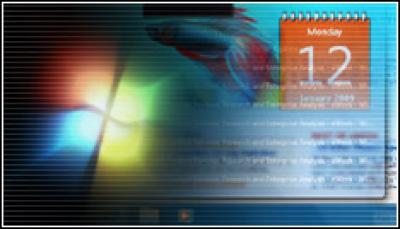Microsoft is offering a free program so that users will be able to check if their existing hardware is compatible with Windows 7.
The Windows 7 Upgrade Advisor is 8.3MB downloadable file. Before running the program, users should plug in and turn on any USB devices, printers, external hard disks, or scanners regularly used with the system being tested.
“Download and run the Windows 7 Upgrade Advisor to see if your PC is ready for Windows 7,” reads the Microsoft web page associated with the software. “It scans your hardware, devices, and installed programs for known compatibility issues, gives you guidance on how to resolve potential issues found, and recommends what to do before you upgrade.”
The Upgrade Advisor represents another aspect of how Microsoft, needing its new operating system to be a substantial hit, is leaving nothing to chance with the rollout of Windows 7.
Of particular interest to Microsoft is convincing users of Windows XP to switch over to the new operating system. Windows XP currently powers around 80 percent of all commercial PCs, according to a research report by Forrester Research.
“When the recession hit, one of the very first levers that IT managers pulled to lower their IT costs was to extend the life of their existing desktops from four to five years and laptops from three to four years,” Forrester analyst Benjamin Gray wrote in that report. “Many more have held off on refreshing their systems even longer because they’re looking to tie in their PC upgrade with their Windows 7 deployment.”
With IT support for Windows XP gradually ending, IT shops wanting to hold onto the older operating system will likely need to upgrade. Extended support for Windows XP Service Packs 2 and 3 will end in April 2014, although Forrester predicts that independent software vendors (ISVs) will start to end their own XP support around the end of 2011, with a support “XP danger zone” developing at the end of 2012.
A number of recent studies, however, indicate that many IT administrators are prepared to make the upgrade to Windows 7. A new survey by Chadwick Martin Bailey (CMB) of 145 IT professionals showed that 51 percent planned to “standardize on Windows 7 for laptops and desktops” while 38 percent would “do so with netbooks over the next two years.”
Liz Eversoll, vice president of CDW Microsoft Solutions Practice, suggested in interview with eWEEK that her company had conducted a multi-company survey that showed IT professionals were interested in jumping to Windows 7. CDW is a prominent technology reseller, marketing a number of Windows-related products.
According to Eversoll, Windows 7’s XP compatibility mode is a particular point of sale for those IT pros, “because in the past, one of the intimidators for an OS upgrade was that not all your applications will run.”
Despite that positive data, however, and the massive marketing campaign tied to the launch, Microsoft executives have been attempting to play down the possible seismic impact of Windows 7 on the tech industry.
During a news conference in Munich, Germany, Microsoft CEO Steve Ballmer suggested that Windows 7 will likely not have a substantial impact on a possible tech refresh into 2010. “There will be a surge of PCs but it will probably not be huge,” he told the media, also saying that it would take some time for the tech sector to regain the sort of sales numbers it enjoyed before the economic recession hit.




